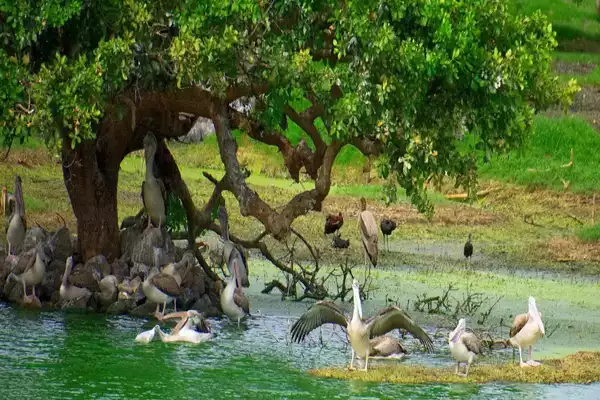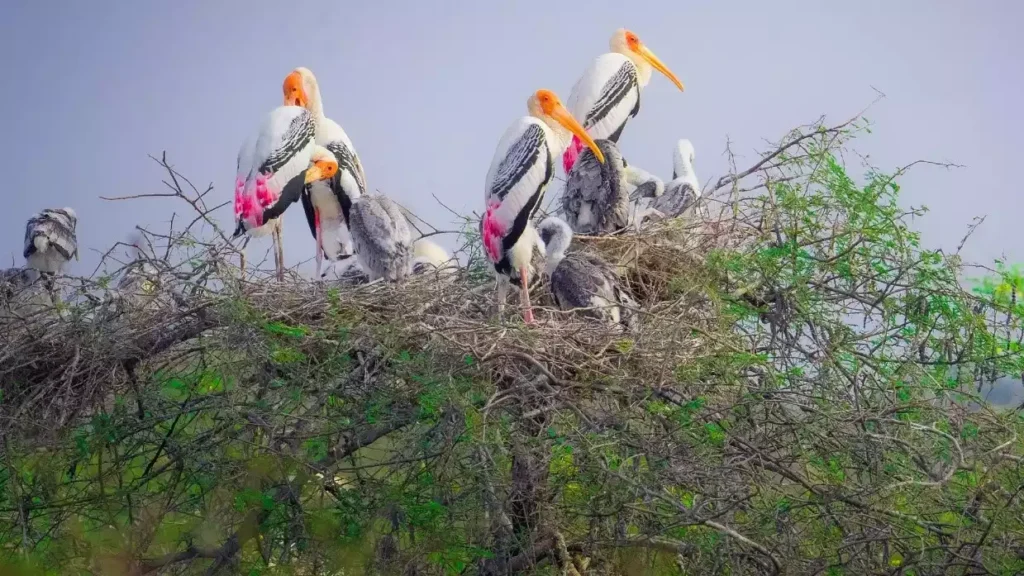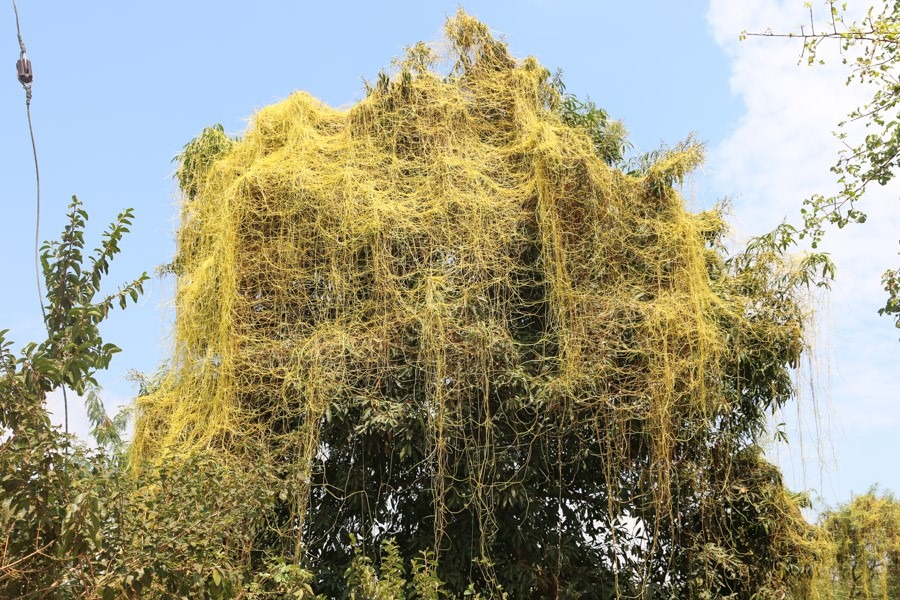Vedanthangal Bird Sanctuary, one of India’s oldest bird-protected areas, is facing threats from the invasive Cuscuta dodder.
About the Vedanthangal Bird Sanctuary:
- The Vedanthangal Bird Sanctuary is one of India’s oldest bird-protected areas and an Important Bird and Biodiversity Area (IBA).
- It was established as Bird Sanctuary in 1858.
- It is a part of the Palar River Basin and the Coromandel Coast biotic province.
- It benefits from a unique ecosystem where Barringtonia and Acacia nilotica trees provide nesting sites.
- The bird excreta, or “guano,” enriches the water, enhancing agricultural yields.
- The lake’s soil, predominantly clay, is made fertile by a guano layer.
About the Cuscuta dodder:
- The Cuscuta dodder is a rootless, pale green or yellow vine that parasitizes host plants with its thin, twining stems and negligible leaves.
- It thrives in both tropical and temperate regions worldwide.
- It is a parasitic weed that jeopardizes the local vegetation, ecology, and habitat for migratory birds in Chengalpet forests and the sanctuary.
- It is also known as Akashbel, Amarbel, and several other names.
- It is a holoparasitic plant that can overwhelm and kill its host with a dense canopy of tendrils, with seeds capable of surviving up to 50 years in dry storage and at least 10 years in the field, posing a significant risk to the sanctuary’s biodiversity.
Ref: Source
| UPSC IAS Preparation Resources | |
| Current Affairs Analysis | Topperspedia |
| GS Shots | Simply Explained |
| Daily Flash Cards | Daily Quiz |




